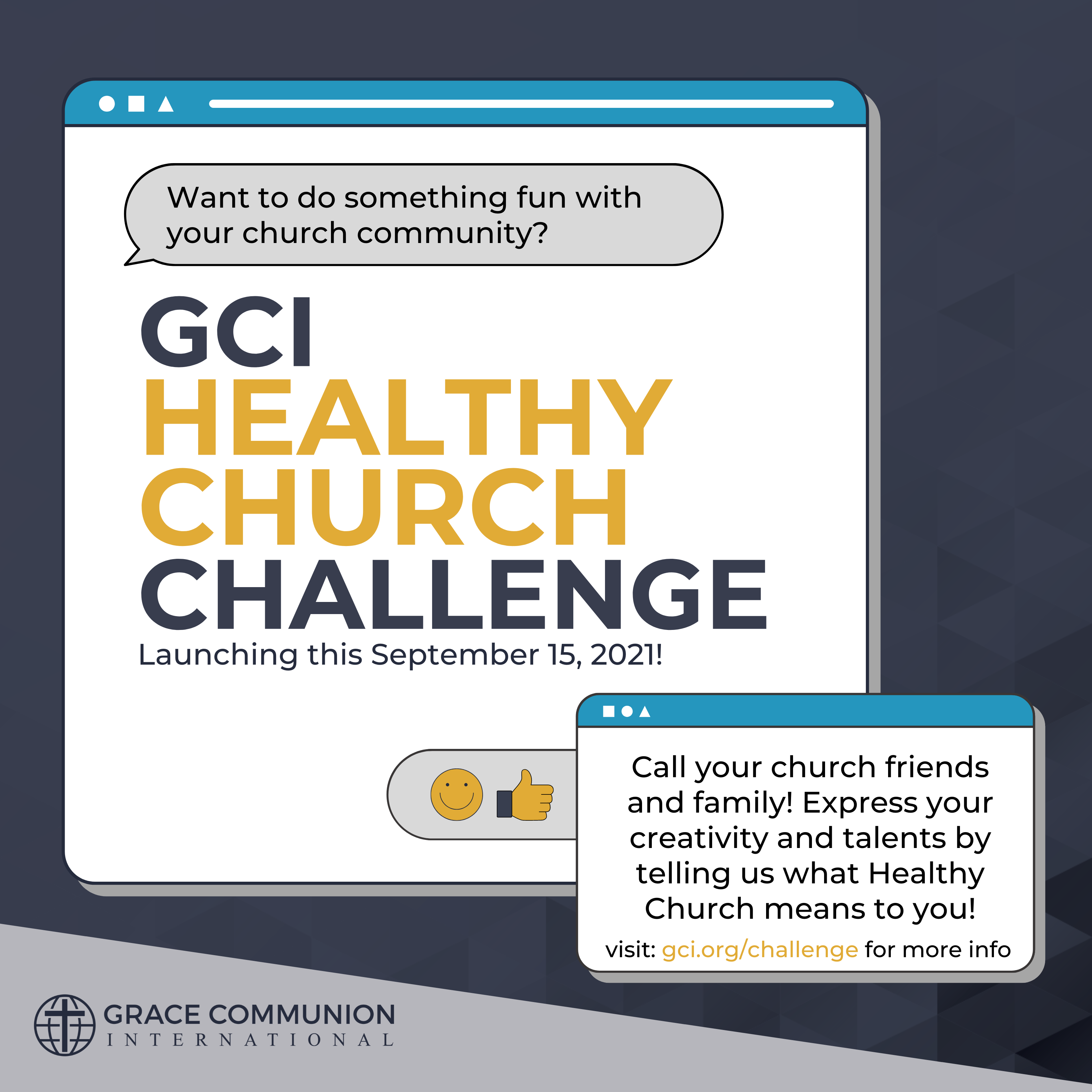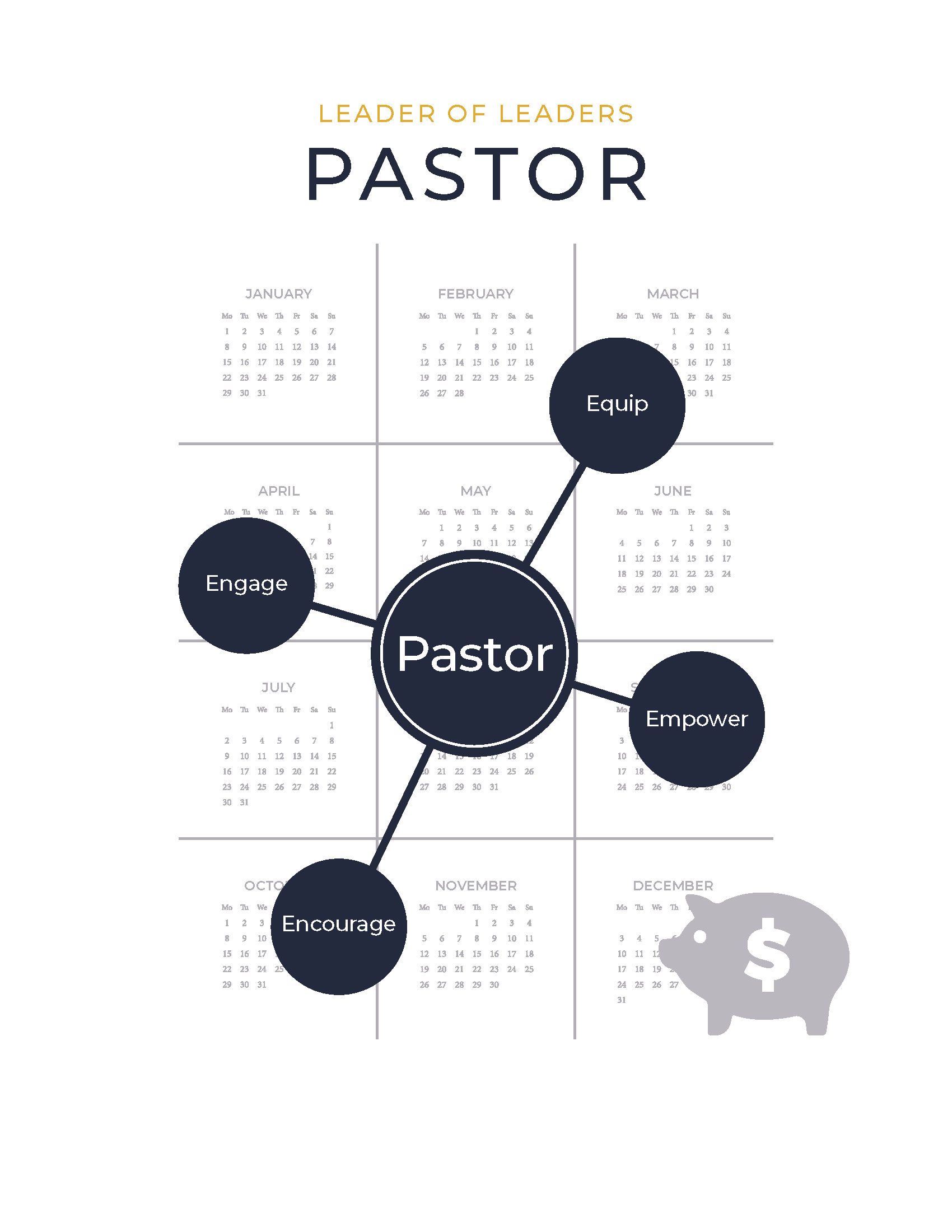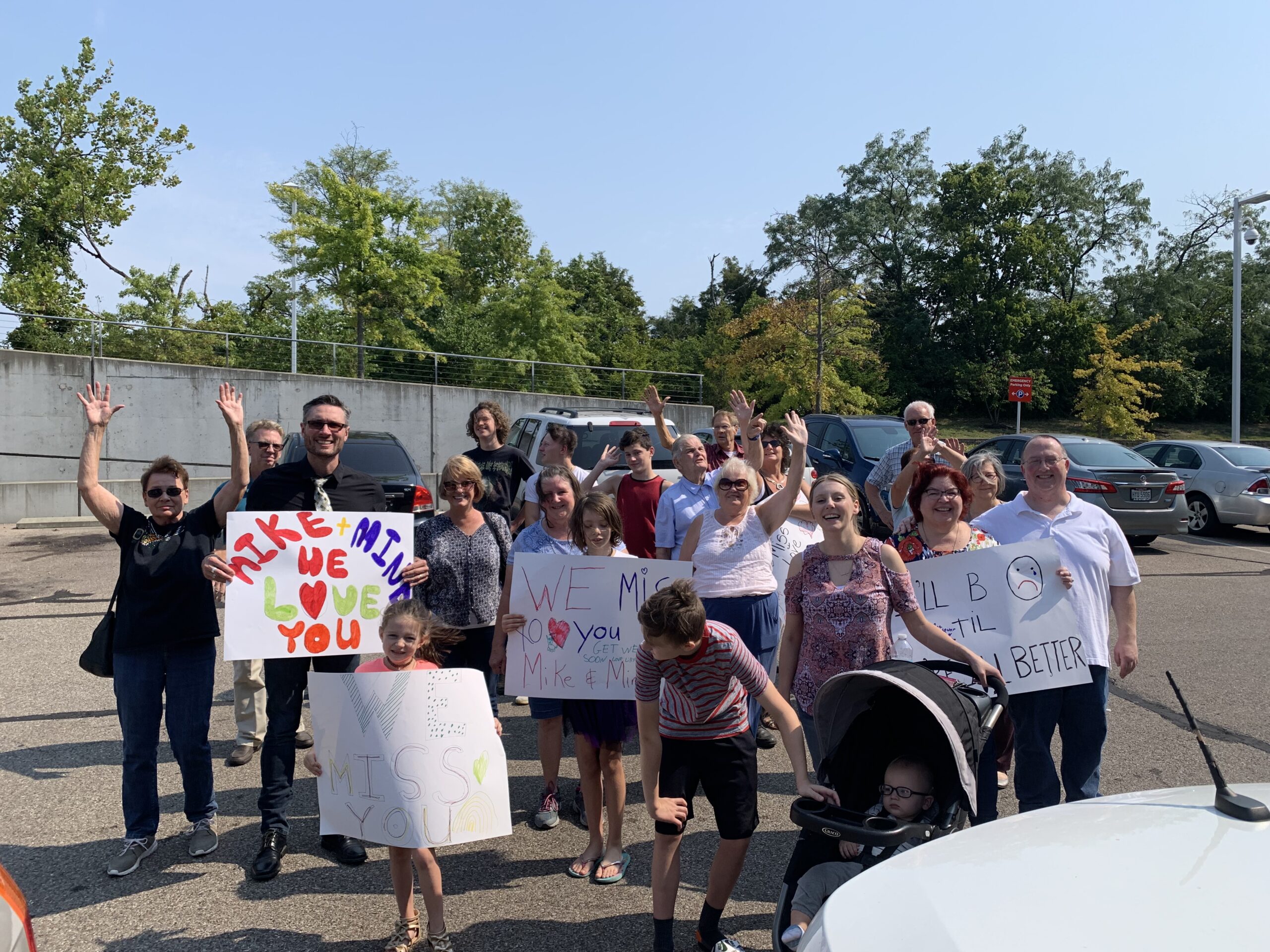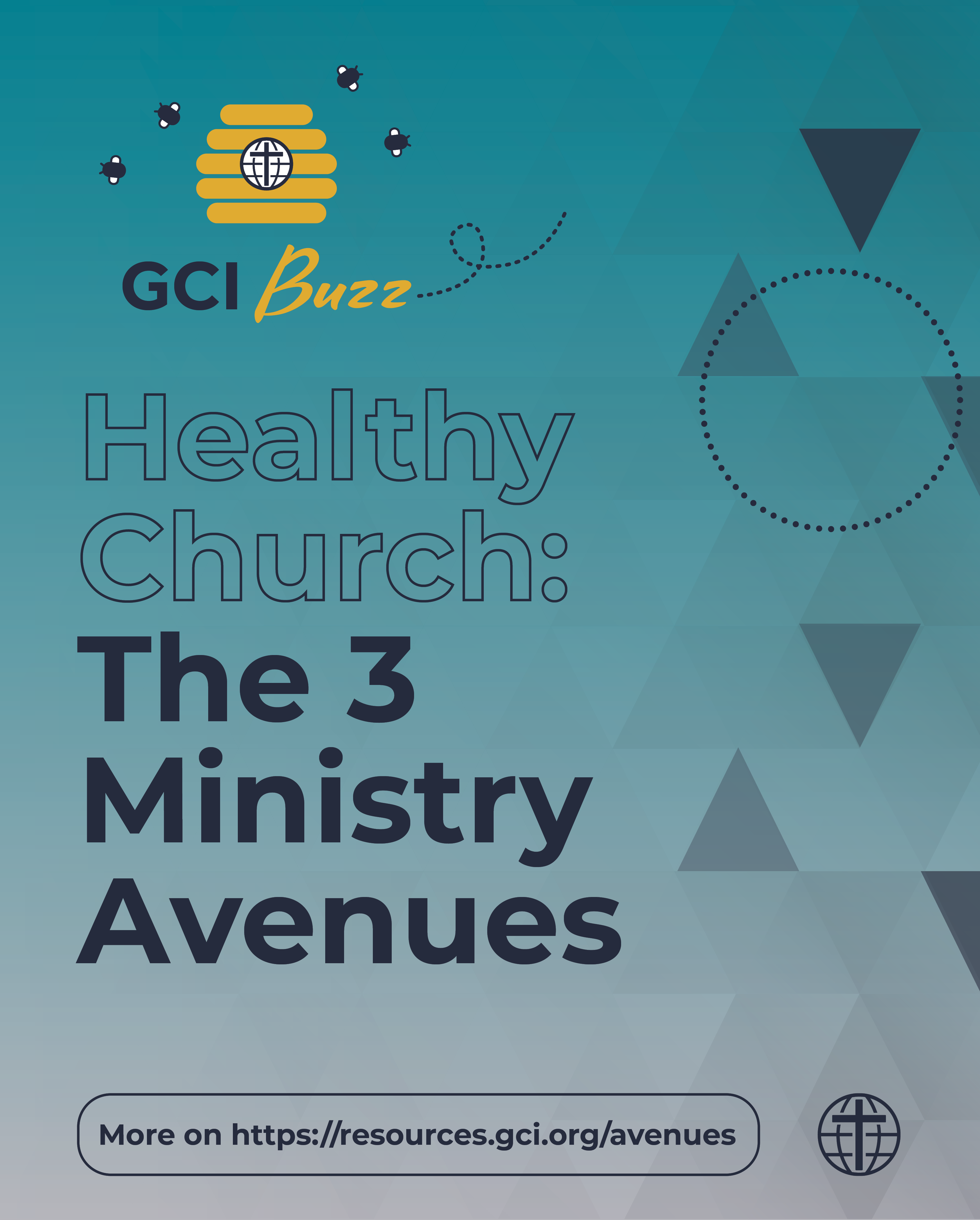
Dear GCI Family and Friends,
At the Home Office we are in the season of preparing our budget for 2022. This is a large task, and yet a rewarding opportunity to collaboratively reflect on what the Spirit is doing among us, as well as prayerfully discerning where and what the Spirit is pointing us toward for the coming year.
We begin this process by reviewing how the budget served our vision of Healthy Church over the past year. We consider what projects may be winding down and how monies can be reallocated to promising new opportunities; what events were supported and what ones are coming in the next year; what equipment we have procured to enable our staff, and what new equipment we may need in 2022; what staffing needs might we face (we continue to work through retirements and the onboarding of new staff).
We are mindful that a similar process happens with our local congregations. This is a great time to take a few moments and reflect on the concept of budgeting to support the vision and mission of your church. Allow me to share some guiding principles that can help you in this important process.
- The work of the church is to make disciples and grow the community of the church.
Our budgeting priorities are going to support the ministries that are outlined by the Faith, Hope and Love Avenues and the annual rhythms of how these avenues interact to accomplish the work of the church.
As an example: GCI is not the humane society rescuing animals, even though a local church may get involved with pet rescue because of their affinity for specific people who love pets. But when our churches sink money into such an organization, that is a misuse of funds dedicated to the work of the church.
When donations are received and receipted by your local church, they should be used for local church initiatives, not for other non-profits. If you have members with a passion for a non-profit, then they can make a personal donation to that organization and not expect the local church to donate to it. The work of the local church is to make disciples by reaching into their neighborhood and connecting people to Jesus and his body, the church.
- The church is to do good.
Various scriptures inform us about the charitable, generous posture of the church. For example, Galatians 6:7-10:
Do not be deceived; God is not mocked, for you reap whatever you sow. If you sow to your own flesh, you will reap corruption from the flesh; but if you sow to the Spirit, you will reap eternal life from the Spirit. So let us not grow weary in doing what is right, for we will reap at harvest time, if we do not give up. So then, whenever we have an opportunity, let us work for the good of all, and especially for those of the family of faith.
Doing good for all people doesn’t necessarily mean making a monetary contribution. It can be spending time, providing acts of service, making phone calls, sharing a meal, etc. How do you place a price tag on a genuine, caring relationship?
As Christ followers, we have a heart for “the good of all,” but realistically, our first responsibility is to the household of faith (this is why we offer help in the wake of devastating natural disasters). We are not the American Red Cross or local government with long-term care. As a denomination, we can only offer short-term emergency help. Neither is it our place to get out in front of biological families and circumvent their role in caring for one another. In GCI we have a history of serving members around the world during times of disaster, and the operation of the emergency fund has been monitored and managed by a Board Committee to assure good oversight.
- The church serves the needy.
James 1:27 is another scripture that helps us order our priorities. Religion that is pure and undefiled before God, the Father, is this: to care for orphans and widows in their distress, and to keep oneself unstained by the world.
Helping the helpless is a Christian responsibility and yet none of us have deep enough pockets to care for the vast population of the world’s poor. We do good where we can, as we can, and we do so in the tradition of Peter and John who declared that they had neither gold or silver, and yet they did have access to Jesus and his healing power for the lives of the people in front of them. We have the same riches and the same access to share with others.
Conclusion
The denomination supports the movement toward church health, and the growing number of healthy churches are becoming more impactful in their neighborhoods with the good news of Jesus and the active love of Jesus. The unique ways of how you will invest your time, talent and treasure in 2022 begins now with the prayerful planning, and discernment of the Spirit’s lead.
Some questions to think about when budgeting in your local church for a particular ministry:
- Is this ministry “making disciples?”
- Is the ministry doing the work of the church?
- Does this ministry build and multiply local leadership?
- Is this ministry working toward local sustainability?
We join you in prayer as we collectively look toward 2022 and a rich season of ministry!
Greg Williams
One of our core values in GCI is stewardship—protecting and preserving what we have. Though stewardship is praiseworthy, when given too much importance, it can get in the way of progress. Some of our congregations are sitting on large sums of money in their financial reserves. The money in your reserves was donated for the purpose of preaching the gospel and making new disciples, should it not be put to work in advancing that gospel mission? Does your church budget for evangelical outreach (Love Avenue)?
If your church is not able to have a Love Avenue due to size or location, work with your Regional Director for suggestions on how you might partner with another church within the region to financially support an outreach project they are working towards or support a neighborhood camp within your region.
These are just a few ways that you can make a legacy for your church within GCI instead of allocating GCI funds toward outside organizations.





 As I look back on the impact Covid has had on GCI financial operations, it is evident that our Lord has been faithfully providing for GCI in unanticipated ways. It is easier to see his faithfulness looking back sometimes and connecting the dots where his hand is evident.
As I look back on the impact Covid has had on GCI financial operations, it is evident that our Lord has been faithfully providing for GCI in unanticipated ways. It is easier to see his faithfulness looking back sometimes and connecting the dots where his hand is evident.






 I received a call from Mike Horchak and he requests prayer on behalf of his family and all those in the Southeast affected by Hurricane Ida and then again, Nicolas. He said a downpour of rain is causing additional flooding and hindering the efforts of the men and women working around the clock to restore power. Mike & Pam are still without power from Ida, with no internet service or home phone service.
I received a call from Mike Horchak and he requests prayer on behalf of his family and all those in the Southeast affected by Hurricane Ida and then again, Nicolas. He said a downpour of rain is causing additional flooding and hindering the efforts of the men and women working around the clock to restore power. Mike & Pam are still without power from Ida, with no internet service or home phone service.